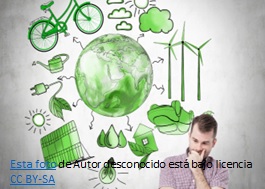Sostenibilidad como valor: experiencia de un emprendedor alemán iniciando una empresa en Colombia
DOI:
https://doi.org/10.17981/econcuc.44.2.2023.Org.5Palabras clave:
Sostenibilidad, Valor organizacional , Emprendimiento, Teoría de los mandos superiores, Negocio sostenibleResumen
La sostenibilidad es un valor que se ha constituido como imperativo en la gestión empresarial, promovido como un elemento necesario en el contexto de competitividad global y una estrategia en el desarrollo de nuevos negocios. En empresas medianas y pequeñas, se encuentra relacionado con los valores y experiencias personales y culturales del líder o emprendedor, que permean la actividad empresarial y en particular la toma de decisiones. El articulo analiza el caso de Prost S.A.S., -una empresa de jugos que inicia en Colombia por jóvenes emprendedores alemanes-, desde la teoría de los mandos superiores, considerando la influencia de los valores personales en la implementación de la sostenibilidad en el negocio. El estudio de caso es de carácter cualitativo y exploratorio, y se realizó a través de una entrevista semiestructurada al fundador de la empresa Prost SAS. Como resultado se evidenció que efectivamente las concepciones o valores personales son transmitidos por los fundadores a la empresa. Sin embargo, existen factores externos que pueden cuestionar el valor de la sostenibilidad como algo positivo en el desarrollo del negocio, o incluso pueden poner en peligro la viabilidad a largo plazo de las pequeñas empresas. Como conclusión la sostenibilidad es un valor que se corresponde con la visión o intención del líder de la empresa, sin embargo, la implementación en procesos en la empresa puede verse afectado por factores externos.
Descargas
Citas
Al-Shammari, M., Rasheed, A. & Al-Shammari, H. (2019). CEO narcissism and corporate social responsibility: Does CEO narcissism affect CSR focus? Journal of Business Research, 104, 106–117. https://doi.org/10.1016/j.jbusres.2019.07.005
Bardi A. & Schwartz S. (2003). Values and Behavior: Strength and Structure of Relation. Personality and Social Psychology Bulletin, 29(10), 1207–1220. https://doi.org/10.1177/0146167203254602
Bocken, N., Short, S., Rana, P. & Evans, S. (2013). A value mapping tool for sustainable business modelling. Corporate governance, 13(5), 482–497. https://doi.org/10.1108/CG-06-2013-0078
Bourne, H. & Jenkins, M. (2013). Organizational Values: A Dynamic Perspective. Organization Studies, 34(4), 495–514. https://doi.org/10.1177/0170840612467155
Bozkurt, Ö., Xheneti, M. & Vicky. (2022). Oh the Front Line of the Circular Economy: The Entrepreneurial, Identity and Institutional Work of a Female Entrepreneur Towards the Circular Transition. Work, Employment and Society, 36(1), 156–166. https://doi.org/10.1177/0950017021104300
Castello, E. (2003). Los nuevos valores en las organizaciones empresariales. Boletín de Estudios Económicos, 58(180), 421–444. Disponible en https://bee.revistas.deusto.es/issue/archive
Chen, J., Liu, X., Song, W. & Zhou, S. (2020). General managerial skills and corporate social responsibility. Journal of Empirical Finance, 55, 43–59. https://doi.org/10.1016/j.jempfin.2019.10.007
Chetty, S. (1996). The case study method for research in small-and medium-sized firms. International Small Business Journal, 15(1), 73–85. https://doi.org/10.1177/0266242696151005
Connelly, B. L., Ketchen Jr., D. J. & Slater, S. F. (2011). Toward a “Theoretical toolbox” for sustainability research in marketing. Journal of the Academy of Marketing Science, 39, 86–100. https://doi.org/10.1007/s11747-010-0199-0
Díaz-Bravo, L., Torruco-García, U., Martínez-Hernández, M. & Varela-Ruiz, M. (2013). The interview, a flexible and dynamic resource. Medical Education Research Journal, 2(7), 162–167. Available: http://riem.facmed.unam.mx/index.php/riem/article/view/430
Donaldson, T. & Preston, L. (1995). The Stakeholder theory of the Corporation: Concepts, Evidence, and Implications. The Academy of Management Review, 20(1), 65–69. https://doi.org/10.2307/258887
Egri, C. & Herman, S. (2000). Leadership in the North American Environmental Sector: Values, Leadership Styles, and Contexts of Environmental Leaders and Their Organizations. The Academy of Management Journal, 43(4), 571–604. Available: https://www.jstor.org/stable/1556356
Esqueda, S., Csoban, E. & Prat, J. F. (2019). A profile of the popular entrepreneur: A value-based approach. Academia Revista Latinoamericana de Administración, 32(2), 267–281. https://doi.org/10.1108/ARLA-03-2018-0055
Farag, H. & Mallin, C. (2016). The influence of CEO demographic characteristics on corporate risk-taking: evidence from Chinese IPOs. The European Journal of Finance, 24(6), 1528–1551. https://doi.org/10.1080/1351847X.2016.1151454
Feather, N. T. (1973). The measurement of values: Effects of different assessment procedures. Australian Journal of Psychology, 25(3), 221–231. https://doi.org/10.1080/00049537308255849
Federal Republic of Germany. Federal Press Office. (1 August, 2022). Germany’s Sustainable Development Strategy. The Federal Government. Available: https://www.bundesregierung.de/breg-en/issues/sustainability/germany-s-sustainable-development-strategy-354566
Finkelstein, S. (1992). Power in Top Management Teams: Dimensions, Measurement, and Validation. The Academy of Management Journal, 35(3), 505–538. Available: https://www.jstor.org/stable/256485
Finkelstein, S. & Hambrick, D. (1996). Strategic Leadership: Top Executives and Their Effects on Organizations. St. Paul: West Publishing Company.
Gioia D. & Chittipedi, K. (1991). Sensemaking and sensegiving in strategic change initiation. Strategic Management Journal, 2 (6), 433–448. https://doi.org/10.1002/smj.4250120604
Gioia, D., Corley, K. & Hamilton, A. (2012). Seeking Qualitative Rigor in Inductive Research. Organizational Research Methods, 16(1), 15–31. https://doi.org/10.1177/1094428112452151
Halaby, C. (2003). Where Job Values Come From: Family and Schooling Background, Cognitive Ability, and Gender. American Sociological Review, 68(2), 251–278. https://doi.org/10.2307/1519768.
Halis, M., I. H. Ozsabuncuoglu & A. Ozsagir. (2007). The values of entrepreneurship and factors that effect entrepreneurship: Findings from Anatolia. Serbian Journal of Management, 2(1), 21–34. https://doi.org/10.32861/jssr.spi6.571.575
Hambrick, D. C. (2007). Upper Echelons Theory: An Update. Academy of Management Review, 32(2), 343–334. Available: https://www.jstor.org/stable/20159303
Hambrick, D. C. & Mason P. A (1984). Upper echelons: The organization as a reflection of its top managers. Academy of Management Review, 9(2), 193–206. https://doi.org/10.2307/258434
Hensellek, S., Kleine-Stegemann, L. & Kollman, T. (2023). Entrepreneurial leadership, strategic flexibility, and venture performance: Does founders’ span of control matters? Journal of Business Research, 157, 1–14. https://doi.org/10.1016/j.jbusres.2022.113544
Hillestad, T., Xie, C. & Haugland, S. A. (2013). Innovative corporate social responsibility: The founder’s role in creating a trustworthy corporate brand through “green innovation. Journal of Product and Brand Management, 19(6), 440–451. https://doi.org/10.1108/10610421011085758
Jessen, H., Jessen K. y Durlej, C. (2014). Plan de negocios de Prost S.A.S. Medellín: Prost S.A.S.
Joshi, A., Verma, P., Dutt, P. & Bindish, P. (2013). Introducing Corporate Social Responsibility (CSR) to a spiritual and ‘superstitious’ India. Parilkapana. KIIT Journal of Management, 9(III), 60–64. https://ssrn.com/abstract=2695305
Junquera, B. & Ordiz, M. (2002). Influence of managerial characteristics on the environmental performance of Spanish companies. Environmental Quality Management, 12(1), 35–51. https://doi.org/10.1002/tqem.10051
Karp, D. G. (1996). Values and their effect on pro-environmental behavior. Environment and Behavior, 28(1), 111–133. https://doi.org/10.1177/0013916596281006
Kassinis, G., Panayilotou, A., Dimou, A. & Katsifaraki, G. (2016). Gender and Environmental Sustainability: A Longitudinal Analysis. Corporate Social Responsibility and Environmental Management, 23(6), 399–412. https://doi.org/10.1002/csr.1386
Ketprapakorn, K. & Kantabutra, S. (2019). Culture Development for Sustainable SMEs: Toward a Behavioral Theory. Sustainability, 11(9), 1–15. https://doi.org/10.3390/su11092629
Krajcsák, Z. (2018). Relationships between employee commitment and organizational cultures: a theoretical framework. International Journal of Organizational Analysis, 26(3), 398-414. https://doi.org/10.1108/IJOA-05-2017-1174
Leppäaho, T., Plakoyiannaki, E. & Dimitratos, P. (2016). The case study in family business: An analysis of current research practices and recommendations. Family Business Review, 29(2), 159–173. https://doi.org/10.1177/0894486515614157
Lorenc, S. & Soronika, O. (2015). Sustainable Development of Mining Enterprises as a Strategic Direction of Growth of Value for Stakeholders. Mining Science, 22(2), 67–68. Available from https://www.dbc.wroc.pl/dlibra/publication/42671/edition/38643/content?&meta-lang=pl
Lüdeke-Freund, F. (october, 2010). Towards a Conceptual Framework of ‘Business Models for Sustainability’. Presented at Knowledge collaboration & learning for sustainable innovation, ERSCP-EMSU 2010, Delft, The Netherlands. https://dx.doi.org/10.13140/RG.2.1.2565.0324
Neely Jr., B. H., Lovelace, J. B., Cowen, A. P. & Hiller, N. J. (2020). Metacritiques of Upper Echelons Theory: Verdicts and Recommendations for Future Research. Journal of Human Values, 18(2), 133–146. https://doi.org/10.1177/0971685812454482
Osterwalder, A. & Pigneur, Y. (2010). Business Model Generation. Chichester: Wiley.
Paris, J. M. & Viltard, L. A. (2017). Innovation and Shared Value Creation (SVC). Breaking the logic of certain markets and thinking about the long term. Palermo Business Review, 15, 25–43. https://repositorio.uca.edu.ar/handle/123456789/9081
Pawar, B. S. & Eastman, K. K. (1997). The nature and implications of contextual influences on transformational leadership: A conceptual examination. Academy of Management Review, 22, 80–109. https://doi.org/10.2307/259225
República de Colombia. Presidencia de la República. (27 de septiembre de 2011). Por el cual se modifican los objetivos y la estructura del Ministerio de Ambiente y Desarrollo Sostenible y se integra el Sector Administrativo de Ambiente y Desarrollo Sostenible. [Decreto 3570]. Diario Oficial: 48205. Disponible en http://www.secretariasenado.gov.co/senado/basedoc/decreto_3570_2011.html
Rokeach, M. (1973). The Nature of Human Values. New York: Free Press.
Sarma, S., Attaran, S. & Attaran, M. (2022). Sustainable entrepreneurship: Factors influencing opportunity recognition and exploitation. The International Journal of Entrepreneurship and Innovation, 1–14. https://doi.org/10.1177/14657503221093007.
Schaltegger, S. & Wagner, M. (2006). Managing and measuring the business case for sustainability. Capturing the relationship between sustainability performance, business competitiveness and economic performance. In S. Schaltegger, M. Wagner (Ed.), Managing the business case for sustainability (pp. 1–27). Sheffield: Greenleaf. https://doi.org/10.4324/9781351280525-1
Schwartz, S. (1992). Universals in the Content and Structure of Values: Theoretical Advances and Empirical Tests in 20 Countries. In M. P. Zanna (Ed.), Advances in Experimental Social Psychology [Vol. 25, pp. 251–265]. Ontario: University of Waterloo. https://doi.org/10.1016/S0065-2601(08)60281-6
Schwartz, S. & Bilsky, W. (1987). Toward A Universal Psychological Structure of Human Values. Journal of Personality and Social Psychology, 53(3), 550–562. https://doi.org/10.1037/0022-3514.53.3.550
Šnircová, J., Fidlerová, H. & Božiková, L. (2016). Sustainable Global Competitiveness Model as a New Strategic Opportunity for the Companies in Slovakia. TEM Journal, 5(2), 241–247. https://dx.doi.org/10.18421/TEM52-19
Stubbs, W. & Cocklin, C. (2008). Conceptualizing a Sustainability Business Model. Organization & Environment, 21(2), 103–127. https://doi.org/10.1177/1086026608318042
Stake, R. E. (1999). Investigación con estudio de casos. Madrid: Morata.
Sung, J. & Woo, H. (2019). Investigating male consumers’ lifestyle of health and sustainability (LOHAS) and perception toward slow fashion. Journal of Retailing and Consumer Services, 49(5), 120–128. https://doi.org/ 10.1016/j.jretconser.2019.03.018
Vaske, J., Donnelly, M. Williams, D. y Jonker, S. (2001). Demographic Influences on Environmental Value Orientations and Normative Beliefs About National Forest Management. Society and Natural Resources, 14(1), 761–776. https://doi.org/10.1080/089419201753210585
Waldman D., Javidan M. & Varella P. (2004). Charismatic leadership at the strategic level: A new application of upper echelons theory. Leadership Quarterly, 15(3), 355–380. https://doi.org/10.1016/j.leaqua.2004.02.013
Yilmaz, A. K. & Flouris, T. (2010). Managing corporate sustainability: Risk management process-based perspective. African Journal of Business Management, 4(2), 162–171. Available: https://academicjournals.org/journal/AJBM/article-abstract/D666F9E21165

Descargas
Publicado
Cómo citar
Número
Sección
Licencia
Derechos de autor 2023 Yamile Andrea Montenegro, Oscar Hernán Vargas Villamizar

Esta obra está bajo una licencia internacional Creative Commons Atribución-NoComercial-SinDerivadas 4.0.
Usted es libre de:
- Compartir — copiar y redistribuir el material en cualquier medio o formato
- La licenciante no puede revocar estas libertades en tanto usted siga los términos de la licencia
Bajo los siguientes términos:
- Atribución — Usted debe dar crédito de manera adecuada , brindar un enlace a la licencia, e indicar si se han realizado cambios . Puede hacerlo en cualquier forma razonable, pero no de forma tal que sugiera que usted o su uso tienen el apoyo de la licenciante.
- NoComercial — Usted no puede hacer uso del material con propósitos comerciales .
- SinDerivadas — Si remezcla, transforma o crea a partir del material, no podrá distribuir el material modificado.
- No hay restricciones adicionales — No puede aplicar términos legales ni medidas tecnológicas que restrinjan legalmente a otras a hacer cualquier uso permitido por la licencia.

 English
English
 Español (España)
Español (España)














